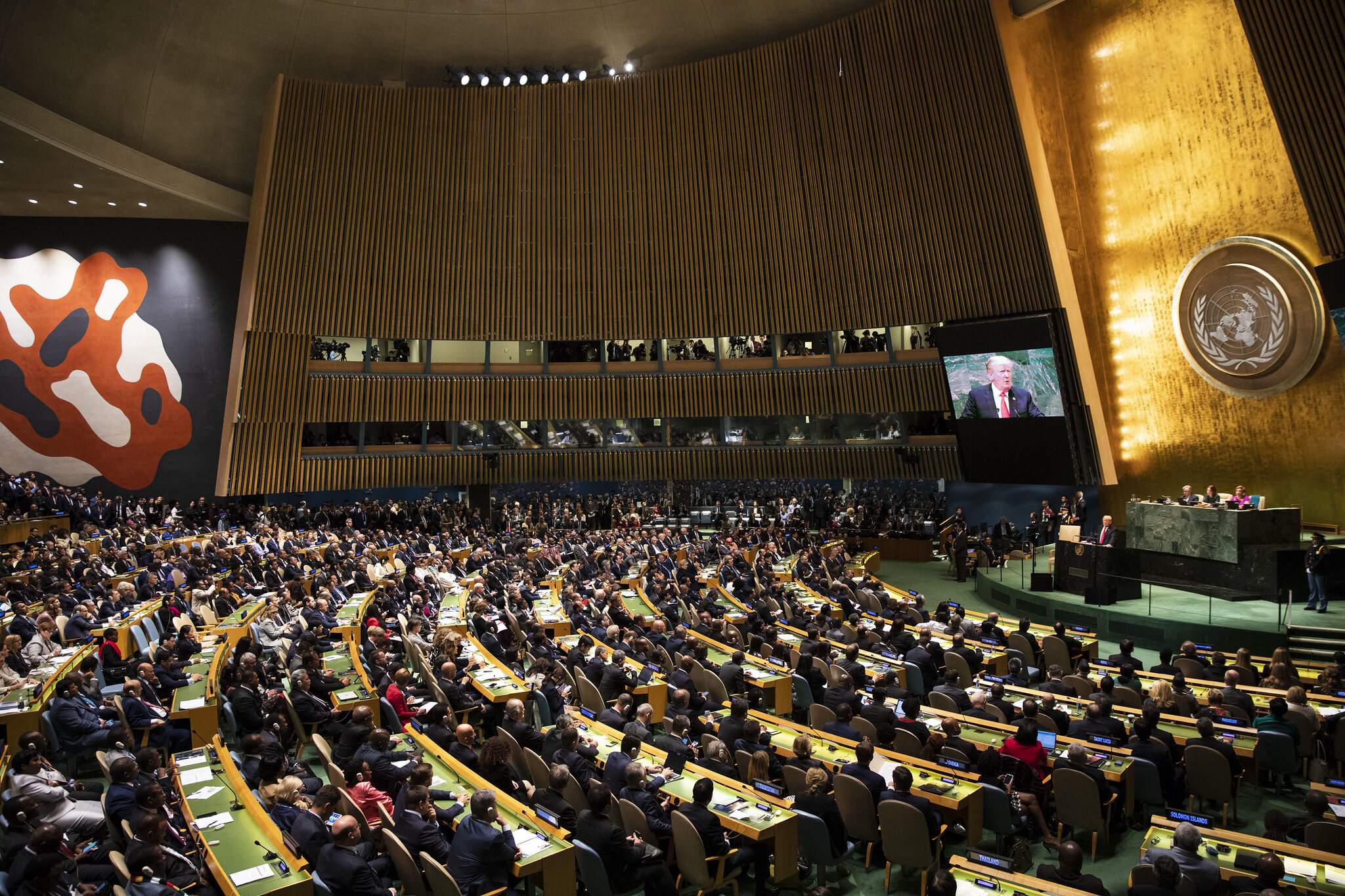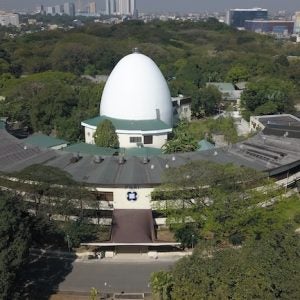 The global nuclear industry on 12 August submitted a statement to the Tenth Review Conference of the Parties to the Treaty on the Non-proliferation of Nuclear Weapons (NPT), representing the views of more than 20 national and international industry associations supporting the peaceful uses of nuclear technology. The statement was handed to Conference President Ambassador Gustavo Zlauvinen, by the Director General of the World Nuclear Association Dr Sama Bilbao y León.
The global nuclear industry on 12 August submitted a statement to the Tenth Review Conference of the Parties to the Treaty on the Non-proliferation of Nuclear Weapons (NPT), representing the views of more than 20 national and international industry associations supporting the peaceful uses of nuclear technology. The statement was handed to Conference President Ambassador Gustavo Zlauvinen, by the Director General of the World Nuclear Association Dr Sama Bilbao y León.
The statement noted that nuclear technologies support a wide range of applications beneficial to both developed and developing nations and that Article IV of the NPT sets out the inalienable right of all States Parties to develop research, production and use of nuclear energy for peaceful purposes. “We therefore urge governments to firmly embrace nuclear technologies in their post-Covid economic recovery and energy transition plans, and to support policies to ensure the realisation of their many benefits in accordance with the United Nations Sustainable Development Goals (SDGs),” it said.
Nuclear energy is widely recognised as a sustainable, low carbon, and resilient source of power generation which will have a central role in addressing energy poverty, energy security and climate change, the statement added, noting that “demand for electricity is increasing, particularly across developing nations” where hundreds of millions of people currently lack access to adequate and reliable electricity supply. Nuclear plants, including advanced technologies that can be deployed in all regions of the world, promote global and local economic growth not only by providing electricity to meet basic needs, but also by contributing to multiple economic sectors and providing direct and indirect national employment.
“A nuclear power plant is a major infrastructure investment that boosts local economies and provides long term, high-skilled, high-paying jobs during plant construction and through more than 60 years of plant operation. Beyond electricity, nuclear plants can power seawater desalination, hydrogen production, district heating/cooling as well as process heat for various industrial processes.”
The statement pointed out that nuclear technologies in food and agriculture can be used to improve the yield of crops, help reduce the losses due to pests and insects, and help keep food fresh for longer, thereby increasing the global available food supply and supporting the agrarian economy. “In particular, nuclear techniques can be used to assess soil quality and study optimum water and nutrient uptake in crops and soil movement, as well as to combat desertification.” Water desalination projects, which improve climate resilience in agriculture, can also be powered by nuclear energy.
Nuclear technologies are also essential for medical research, diagnosis and treatment for tens of millions of people each year around the globe. Radiation therapy (radiotherapy) continues to be one of the most effective treatments for many different types of cancer, as well as other conditions. “Innovation in nuclear medicine will contribute to the health and well-being of current and future generations,” the statement said. Nuclear technologies can be an effective tool in the inspection and assessment of critical infrastructure and industrial components through non-destructive testing.
The statement concluded: “We, the undersigning international and national industry associations and their members, look forward to continuing to support the implementation and fulfilment of the responsibilities set out in the NPT.” The signatories reaffirmed their commitment to:
- “Supporting the important role and programs of the International Atomic Energy Agency (IAEA) to facilitate access to peaceful nuclear applications to improve the quality of life and well-being of people around the world and to promulgate global safety standards for nuclear technologies;
- Facilitating implementation of international legal commitments embodied in the IAEA statute; Safeguards agreements concluded pursuant to the NPT; additional protocols to the Safeguards agreements; and regional and bilateral accords providing for IAEA verification;
- Exposing insecure or illicit practices regarding nuclear and radioactive material management and to use all necessary precautions to ensure appropriate regulatory control during use, storage, transport and waste disposal;
- Incorporating safeguards, safety and security measures into the design of new nuclear facilities;
- Appropriately managing used fuel from its discharge from the reactor up to final disposal and/or recycling in accordance with a well-defined practical programme based on a realistic financing plan;
- Deploying our resources to support the delivery of the UN Sustainable Development Goals to create a healthier, more resilient and more sustainable world; and
- Maintaining a high degree of safety and to ensuring the responsible and sustainable development of nuclear technology in the future.”
They called upon the NPT States Parties to:
- “Acknowledge that nuclear energy and technologies are essential to sustainable development and the sound environmental stewardship of our planet and to mitigating climate change.
- Support IAEA’s activities and actions to expand and sustain access to peaceful uses as well as to promote the safety and security of all civilian nuclear facilities for peaceful uses.
- Uphold the right of all States Parties that meet their obligations under the NPT to access peaceful nuclear techniques and applications, and to facilitate the transfer of nuclear technology to those countries.
- Recognise that the open and transparent exchange of safety related information is essential to the peaceful uses of nuclear technology.
- Develop the potential of civilian nuclear technologies for peaceful purposes via an integrated approach involving the IAEA, UN agencies and other multilateral organisations, including the international development banks.
- Work in a timely and efficient manner towards the harmonisation of regulations that will facilitate a broader access to peaceful nuclear technologies.”
Supporters included: China Isotope and Radiation Association, Canadian Nuclear Association, Canadian Nuclear Isotope Council, The Council on Radionuclides and Radiopharmaceuticals, Czech-Nuclear-Association,The International Committee for Non-Destructive Testing, International Irradiation Association, International Source Suppliers and Producers Association, Japan Atomic Industrial Forum, Korea Nuclear Association, Nuclear Energy Institute, Nuclear Industry Association, Nuclear Medicine Europe, nucleareurope, Source Security Working Group, Urenco, United States Nuclear Industry Council, World Association of Nuclear Operators,Women in Nuclear Global, World Nuclear Transport Institute, World Nuclear Association.
Image courtesy of GEDES






